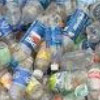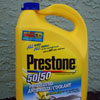- -Able to indentify environmental issues in the hopitality industry.
- -Able to understand recycling as a solution.
- -Able to understand how to improve resource efficiency.
-
Environmental Impact
Click on the Play button to start the introduction video.
-
Show Me!
Show Me!
Environmental Issues in HospitalityClick on the Play button to start the video.
It is crucial that the Hospitality industry thinks about environmental issues such as:
- lowering energy use.
- recycling.
- reducing water consumption.
- setting up procedures that are environmentally friendly.
The main environmental issues facing the Hospitality industry include:
- sustainability.
- waste management.
- energy use and efficiency.
- resource use and efficiency.
- water resource management.
- recycling and re-use.
Sustainability means being able to meet the needs of people without affecting the natural processes and functions of the environment. A sustainable business is one that has changed the way it does business to reduce the impact on the environment, such as reducing waste, recycling, and reducing water use.
Waste management is a big issue in the Hospitality industry because a range of waste materials is produced, some in very large quantities. A good plan is one that decreases the amount of waste going into landfills by increasing the amount of waste that can be recycled, composted or re-used.
Energy use and efficiency means reducing energy consumption, by using energy more efficiently to provide the same services, eg using energy saver light globes, or maximising the use of natural light.
Resource use and efficiency involves the use of a range of resources, such as plastics, wood and paper products, and using them efficiently to improve overall sustainability.
Water resource management is concerned with the fact that the environment depends on good management and sensible use of water, eg hosing down late at night, use of water saving devices, showerheads, linen and towel washing cycles.
Recycling and re-use includes the collecting and sorting of recyclable materials such as glass, paper and plastic, and helps reduce the amount of rubbish going into landfills, and this in turn reduces the pollution that results from waste disposal.
Show Me!
Recycling as a SolutionClick on the Play button to start the video.
Many products used in the Hospitality industry have the potential to damage the environment, for example:
- paper.
- plastic.
- hazardous materials.
- equipment.
Paper:
- creates methane when placed in a landfill, which contributes to global warming.
Plastic may:
- be toxic and non-biodegradable.
- remain in the environment for hundreds or thousands of years.
- pollute forests, rivers and oceans.
Hazardous materials:
- may cause injuries or illnesses if contact is made with them.
- must be disposed of correctly.
- include cleaning agents and chemicals.
Equipment
Electrical equipment may have a negative effect on the environment.
Electrical equipment should be:
- kept in good working condition
- to minimise the need for energy.
- to prevent generating unnecessary pollution.
- removed by specialist recycling companies.
Recycling is the process of converting waste into something useable again, for example:
- old paper and cardboard turns into recycled paper.
- drink cans and glass are melted down and re-used for more cans and bottles.
Recycling begins in the workplace and requires systems to be put in place.
Special bins are used for the separation of all recyclable materials, such as:
- newspapers.
- glass bottles.
- cans.
Compostable waste
Composting is nature's way of recycling.
Restaurants have a lot of compostable waste, such as:
- food.
- disposable plates, knives and forks, which
- are often made of cornstarch or bamboo which are compostable.
Staff need to sort plastic, glass and metal into separate bins. Compostable products should be put in another bin.
Successful outcomes can be measured and recorded to see where the areas for improvement might be.
Show Me!
Improving Resource EfficiencyClick on the Play button to start the video.
Positive work practices and strategies to help reduce waste and improve resource efficiency include:
- accurate ordering and stock rotation - reduces waste and products going out-of-date.
- accurate serving and correct calculations of food services.
- alternative energy sources, eg solar energy.
- environmental policies, eg turning off lights.
- using environmentally friendly and energy efficient products.
- using bio-degradable materials.
- reducing paper wastage.
- removing disposable plates, bowls, forks and cups.
- replacing plastic disposable products with products made from bamboo or recycled paper.
- composting food waste and disposable utensils.
All of these strategies will have a positive effect on the environment and improve business image and outcomes.
Waste prevention techniques are commonly known as the 4 R's.
REDUCE RE-USE RECYCLE RECOVER.
-
Say It
There are 2 parts in this section.
1. The GlossaryThe glossary lists the more difficult words related to the topic in alphabetical order. The glossary also gives the meaning for each word.
2. Look, Cover, Write, Check!This activity gives you practice at remembering and writing the words from the glossary.
The Glossary
-
Do It

In recent years, environmental issues have become more important to society, governments and businesses across the world. The hospitality industry is no exception and protecting the environment by minimising the environmental impact of work practices is now a vital issue.
It is crucial that the industry is proactive and thinks about issues such as lowering energy use, recycling, reducing water consumption and setting up procedures that are environmentally friendly.
Jump to ActivitiesDo It: Environmental Issues in the Hospitality Industry


The main environmental issues facing the hospitality industry today include:
- Sustainability
- Waste management
- Energy use and efficiency
- Resource use and efficiency
- Water resource management
- Recycling and re-useDo It: Recycling as a Solution

Many of the products used in the hospitality industry on a regular basis have the potential to damage the environment if they are not used properly.
Some of these products include:
- Paper
- Plastic
- Hazardous materials
- EquipmentAn excellent solution that is taking place to minimise this kind of damage to the environment is the process of recycling.
Do It: Compostable Waste
Composting is nature's way of recycling. Composting offers the benefits of resource efficiency and the creation of a useful product from organic waste that would otherwise have been landfilled.
Restaurants have a lot of food waste that is compostable. Disposable plates, knives and forks are often made of compostable products such as corn starch, so everything can be put in the same bin and nothing needs to go to landfill.
Staff need to separate plastic, glass and metal into separate bins. Compostable products should be put into another bin. If a food waste bin is contaminated by other products, it must be sorted, which is time-consuming, costly and messy.
Do It: Improving Resource Efficiency
In order to minimise the negative impacts on the environment, there are positive work practices that need to be encouraged and implemented in all areas of the hospitality industry. There are a number of strategies and procedures that can be implemented in hospitality businesses which reduce waste and improve resource efficiency.
Some of these are:
- Accurate ordering, serving and stock rotation - can assist in reducing waste and products going out of date.
- Correctly calculating food orders can reduce wastage.
- Adopting alternative energy sources (e.g. solar energy).
- Using and purchasing environmentally-friendly products and biodegradable materials.
- Composting food waste and disposable utensils.
- Reducing paper wastage - removal of disposable plates, bowls and cups, reducing plastic disposable products and replacing with other products made of bamboo or recycled paper such as straws, cups, glasses so they can be composted.
Check It
Check It QuizEnvironmental ImpactClick on Environmental Impact to begin.
- Introduction
- Show Me
- Say It
- Do It
- Check It





